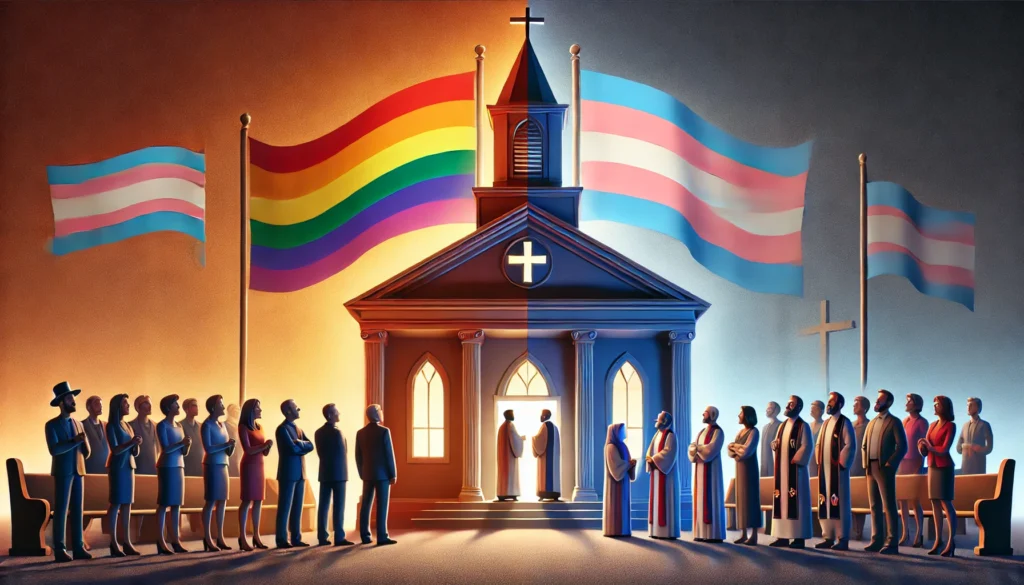
A House Divided: Religious Leaders and Transgender Rights
Why do some religious leaders support transgender rights, while others oppose them?
The Growing Debate
In recent years, transgender rights have become a prominent issue. Consequently, religious communities find themselves grappling with this topic. Some leaders advocate for inclusion; others stand firm in traditional beliefs. This divide raises important questions about faith and identity.
Differing Interpretations of Scripture
Many Christian leaders base their views on biblical teachings. For instance, some cite Genesis, emphasizing God creating humans as male and female. They argue that this binary design is intentional and sacred. Therefore, altering one’s gender identity conflicts with divine intent.
Conversely, other leaders interpret scripture differently. They highlight passages that call for love, compassion, and acceptance. To them, supporting transgender individuals aligns with Jesus’ message of loving one’s neighbor. This perspective emphasizes empathy over strict adherence to traditional interpretations.
Personal Experiences Shape Perspectives
Personal relationships often influence leaders’ stances. Pastor Charles McKinzie, for example, has a gender-fluid child. This experience led him to advocate for transgender rights, viewing it as an expression of his faith. He believes all individuals reflect God’s image, regardless of gender identity.
In contrast, some leaders, without personal connections to transgender individuals, may rely solely on doctrine. Their lack of firsthand experience can result in a more rigid stance. This contrast illustrates how personal interactions can shape one’s understanding and beliefs.
Balancing Compassion and Doctrine
The crux of the debate lies in balancing compassion with doctrinal beliefs. Leaders like McKinzie prioritize empathy, seeing support for transgender rights as a moral imperative. They argue that embracing diversity reflects God’s love for all creation.
On the other hand, leaders adhering strictly to doctrine fear that accepting transgender identities compromises their faith’s core principles. They worry it may lead to a slippery slope, eroding other traditional values. This tension between love and law creates a complex landscape within religious communities.
The Role of Religious Institutions
Religious institutions play a significant role in this discourse. Some denominations have adopted inclusive policies, ordaining transgender clergy and performing same-sex marriages. These actions signal a shift toward acceptance and recognition of diverse identities.
However, other institutions resist such changes. They uphold traditional teachings, viewing them as timeless truths. This resistance often stems from a desire to preserve their interpretation of moral order. Consequently, these differing approaches can lead to fragmentation within larger religious communities.
Navigating the Path Forward
As society continues to evolve, religious leaders face the challenge of addressing transgender rights thoughtfully. Engaging in open dialogues, educating themselves, and fostering empathy are crucial steps. By doing so, they can bridge divides and find common ground.
Interactive Poll: Your Perspective
Do you believe religious institutions should support transgender rights?
-
Yes, they should be inclusive.
-
No, they should adhere to traditional teachings.
-
I’m unsure; it’s a complex issue.
Conclusion
The division among religious leaders regarding transgender rights reflects broader societal debates. It underscores the dynamic nature of faith and its interpretation. By understanding the various perspectives and their reasons, we can foster more compassionate and informed discussions within our communities.
Please subscribe to our YouTube channel at https://www.youtube.com/@PossibilityPluspm for inspiring videos
